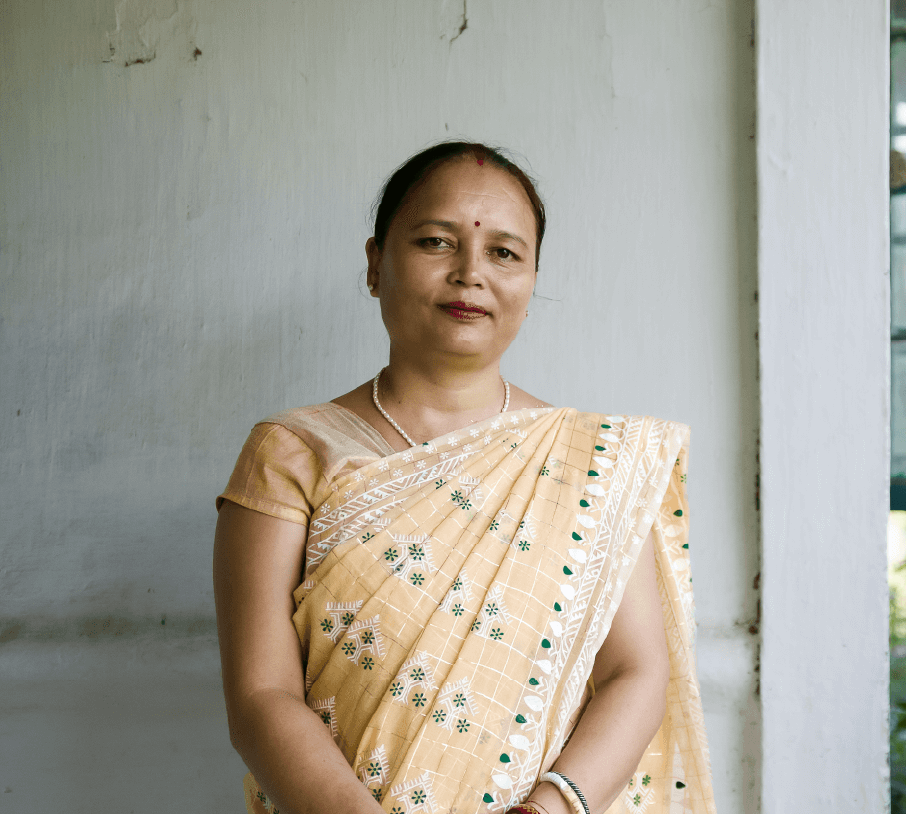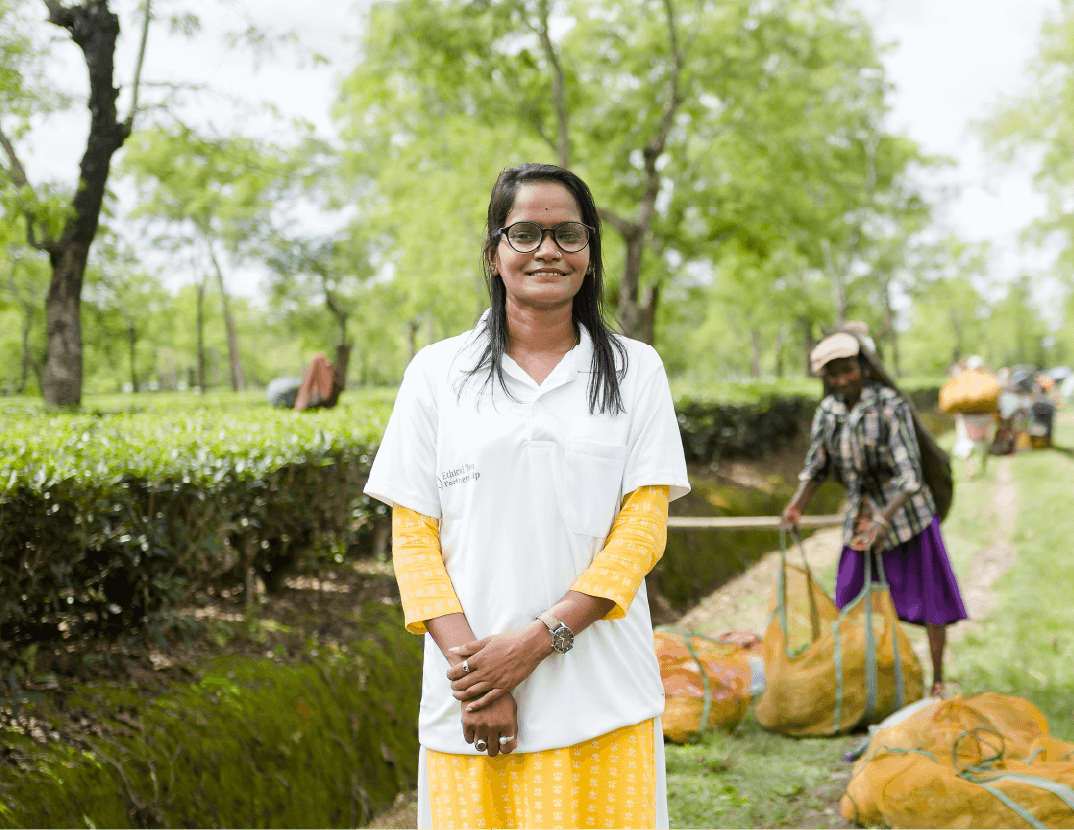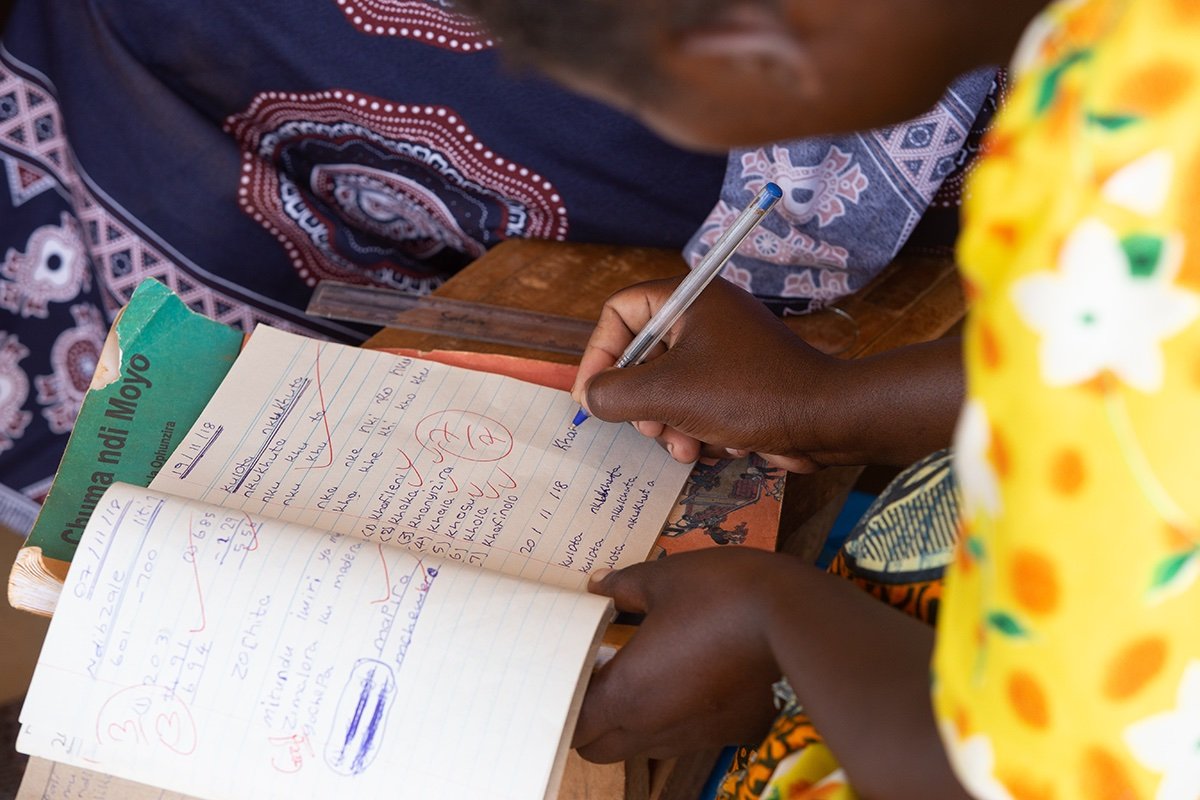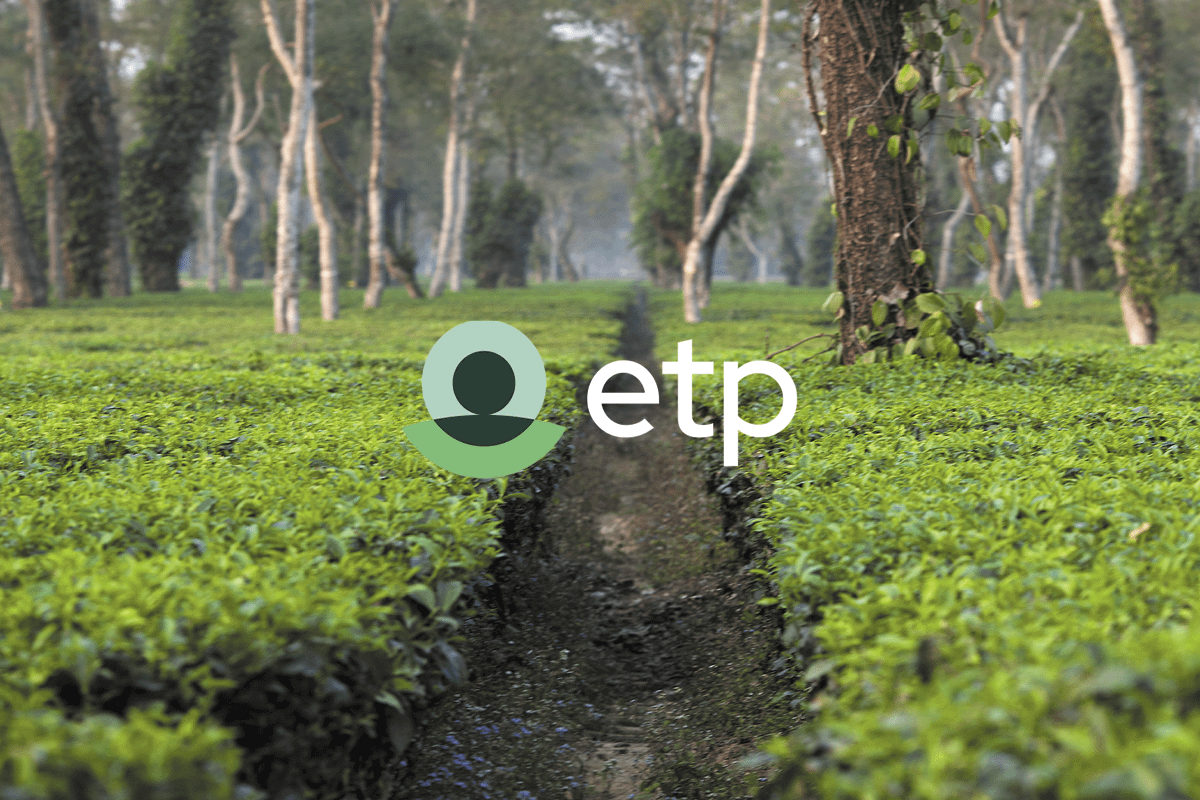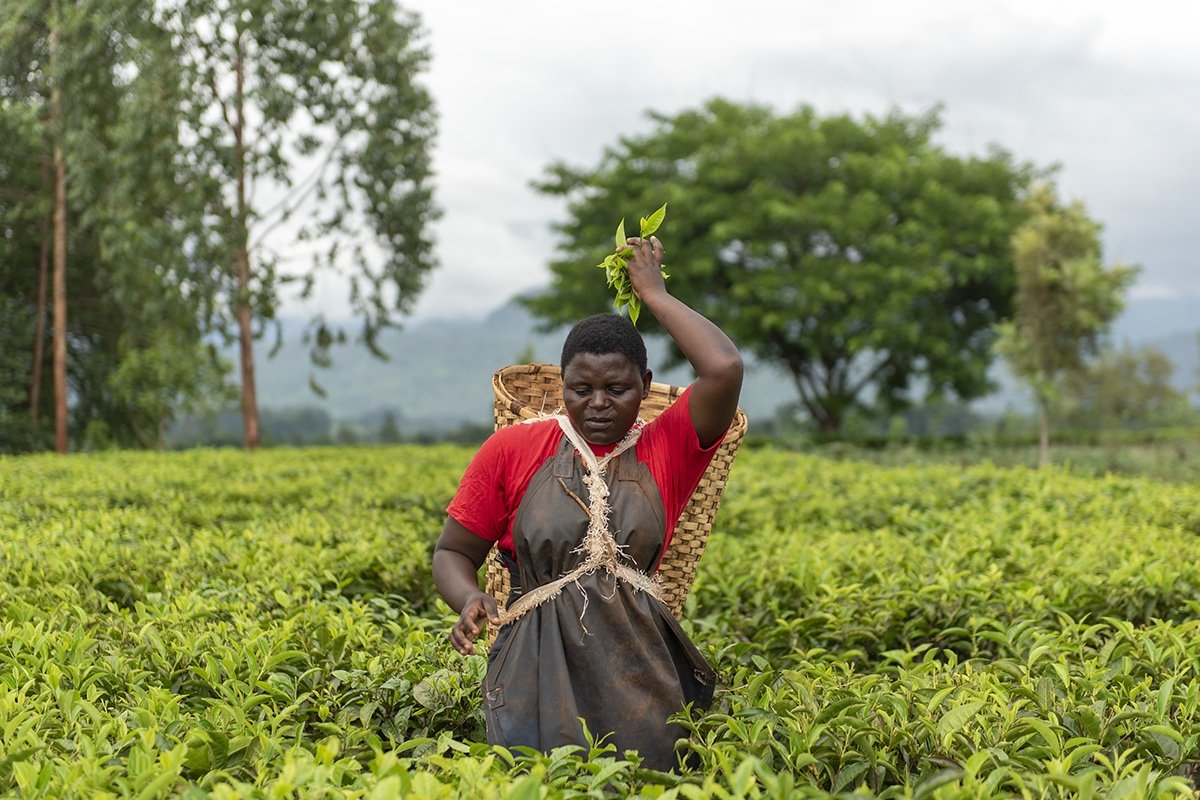- We focus on empowering farmers to secure a sustainable living income. In collaboration with a range of partners and communities, our projects provide training and establish community-led savings groups. These serve as tools for farmers to overcome financial barriers, enhance their tea businesses’ resilience, and explore additional income-generating activities
- In tandem, other projects seek to ensure that workers earn a living wage. These include initiatives to encourage workers to fully realise and exercise their rights, and those that improve supply chain efficiency, putting producers in a stronger position to pay higher wages
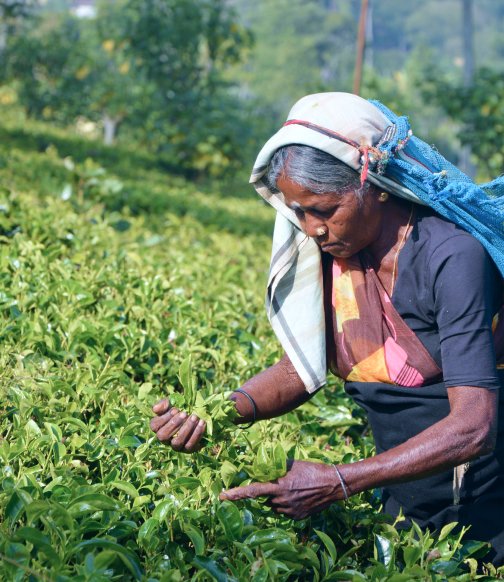
Everyone involved in tea production has good livelihoods – position paper coming soon.

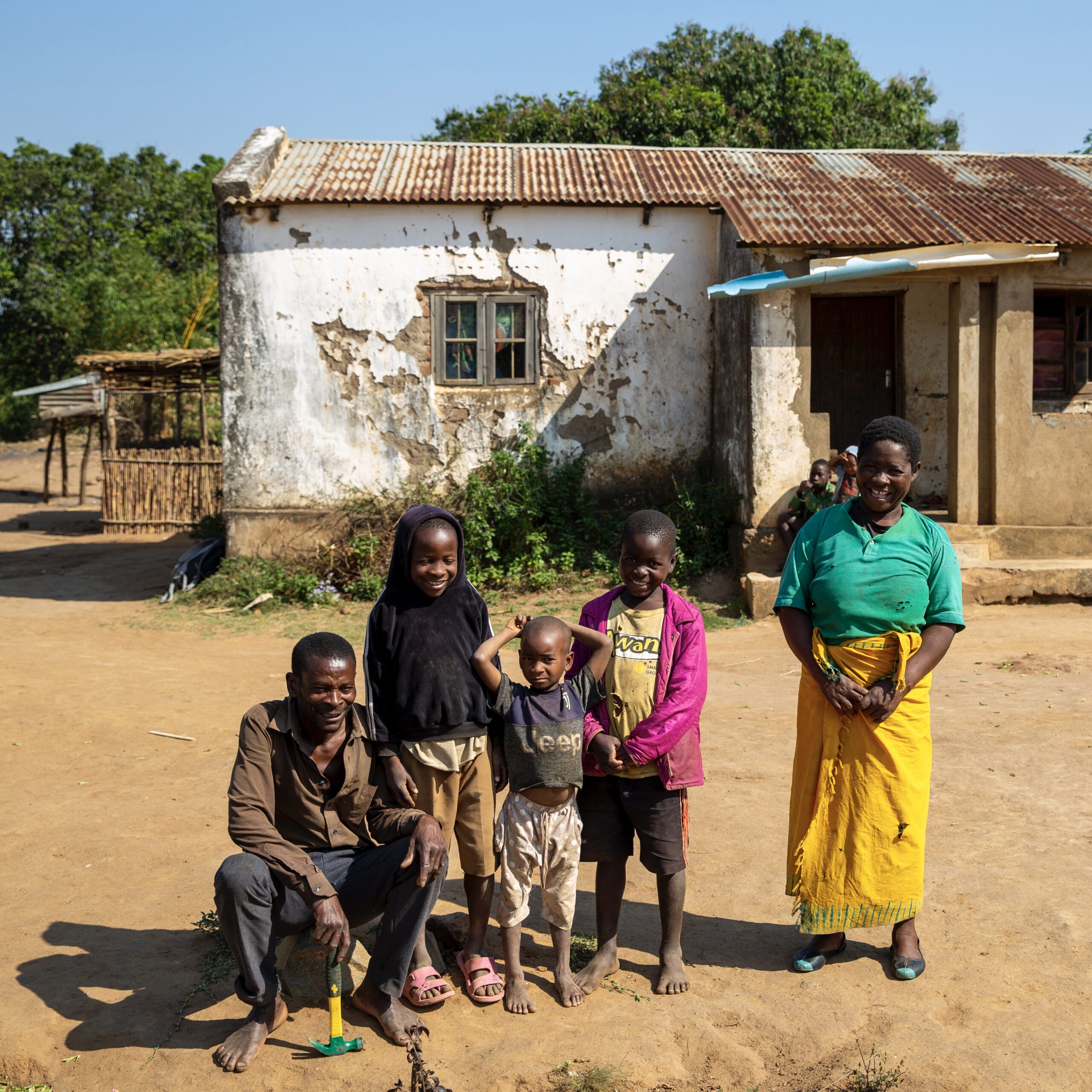

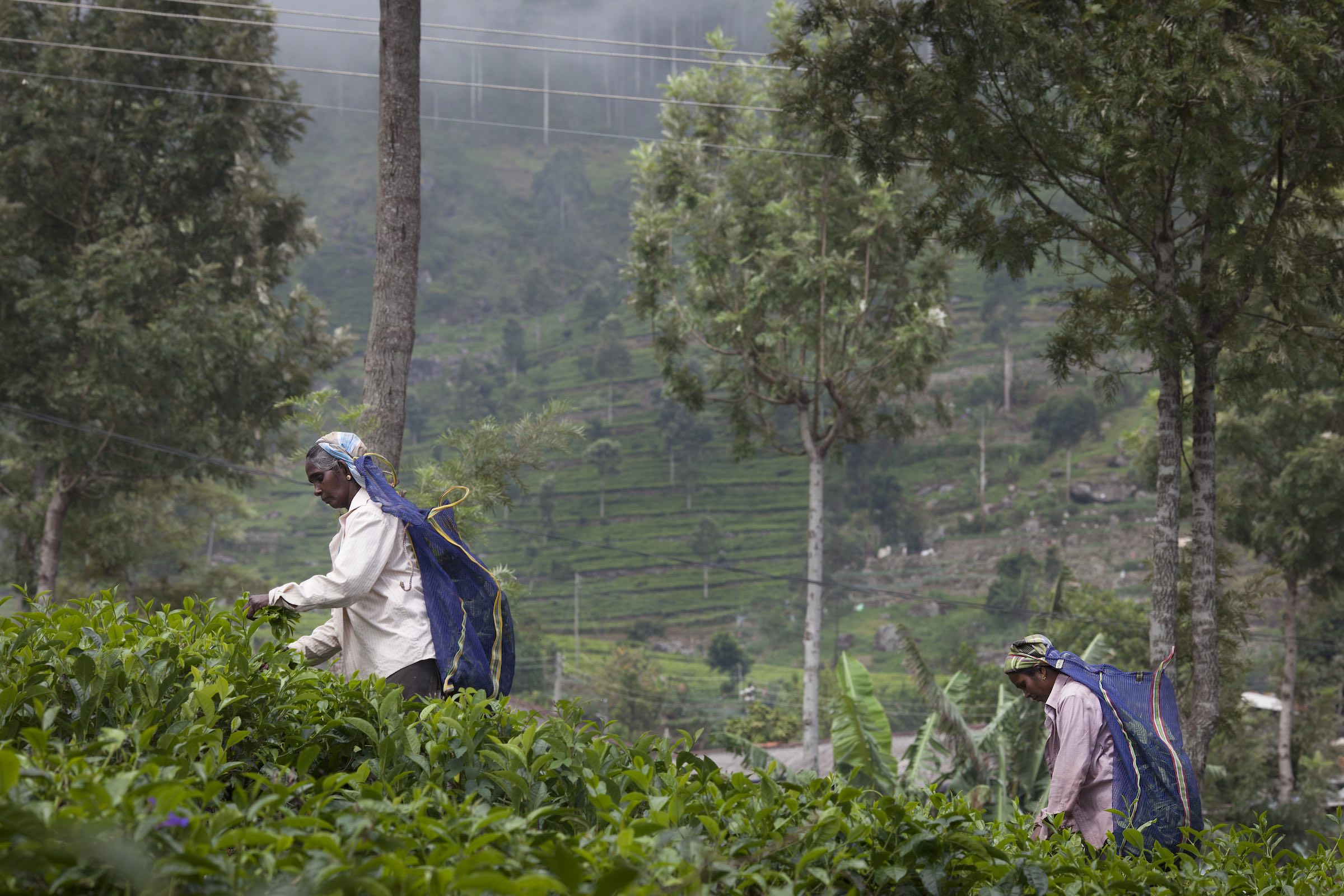


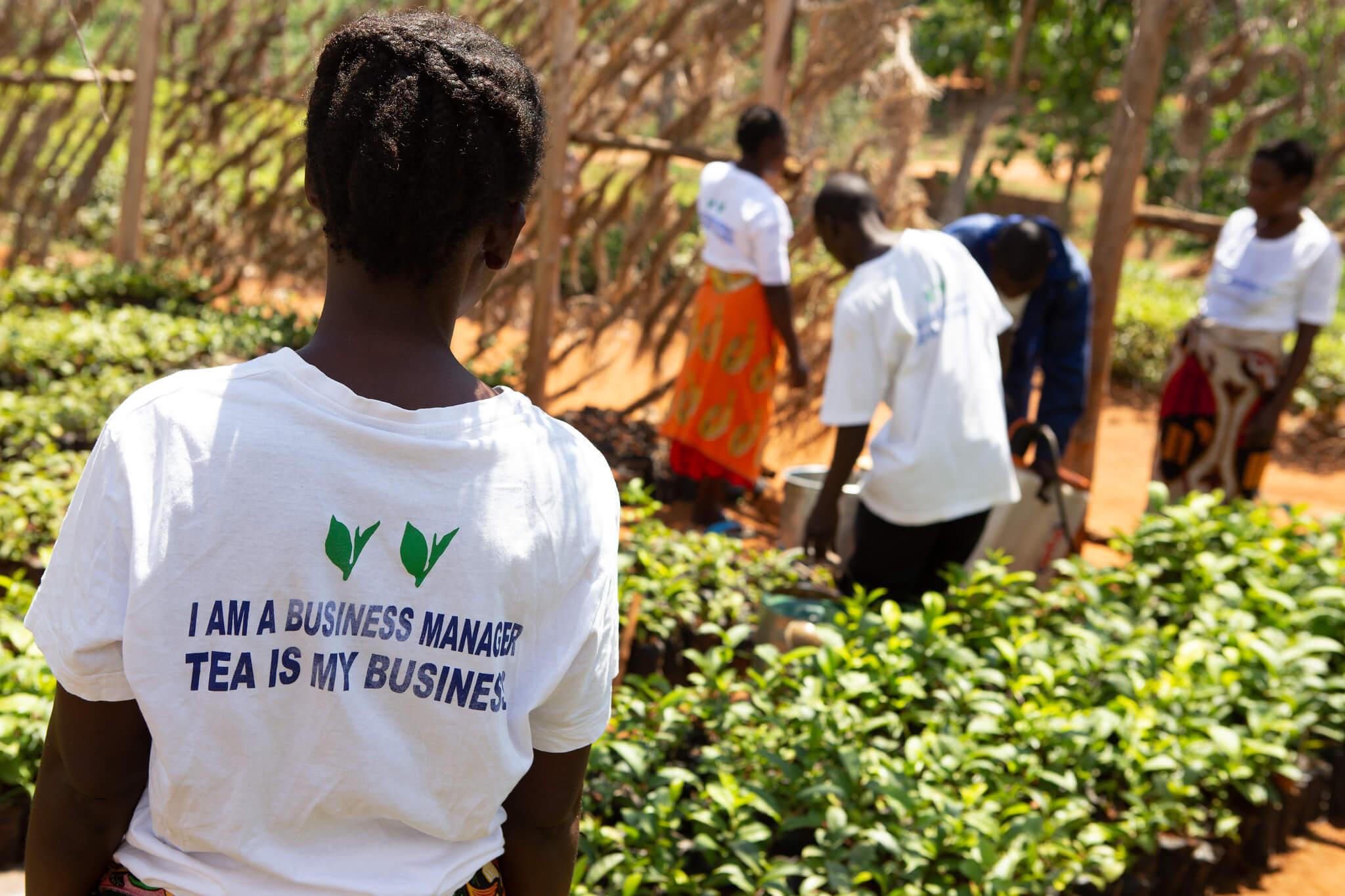
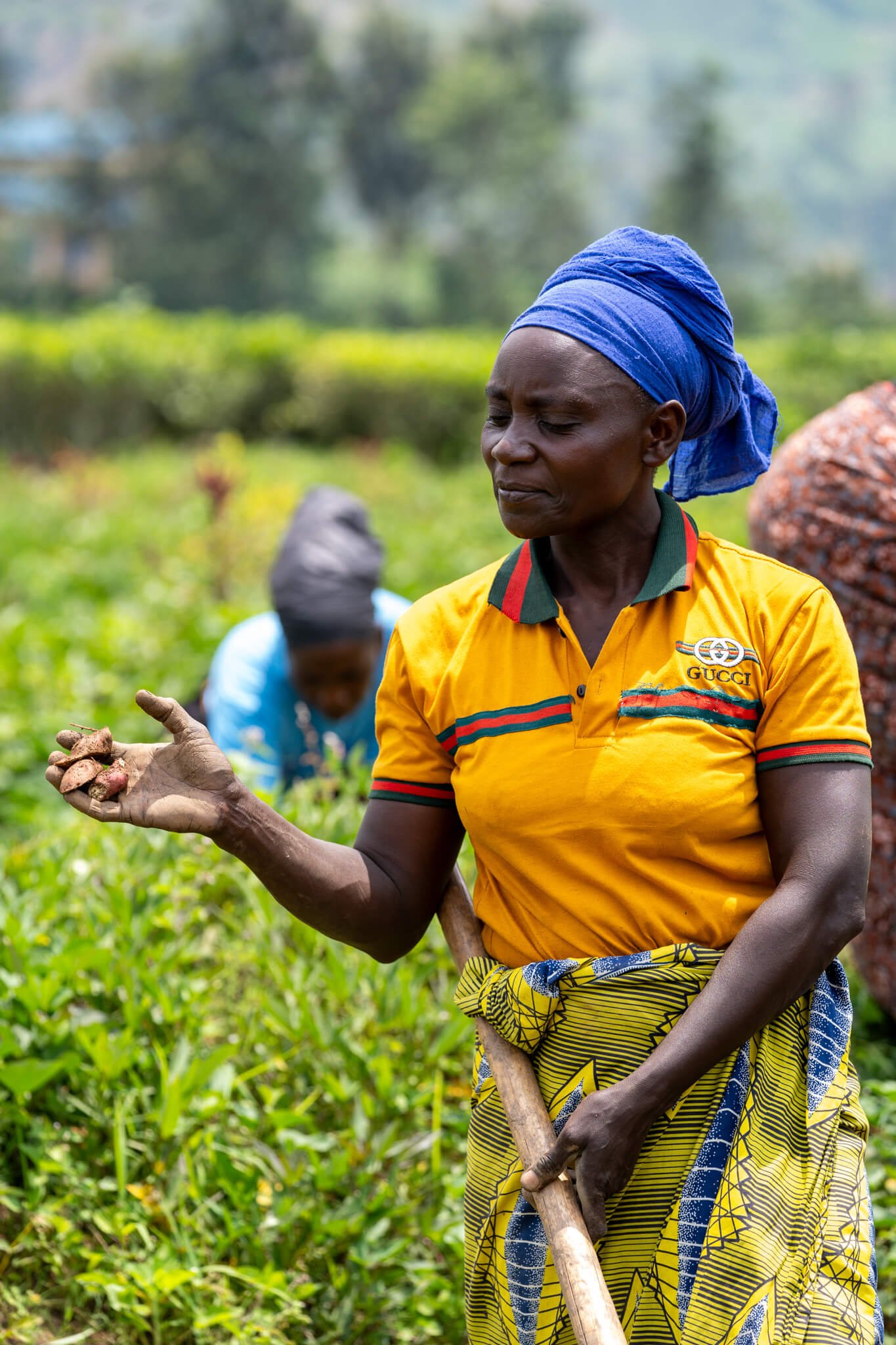

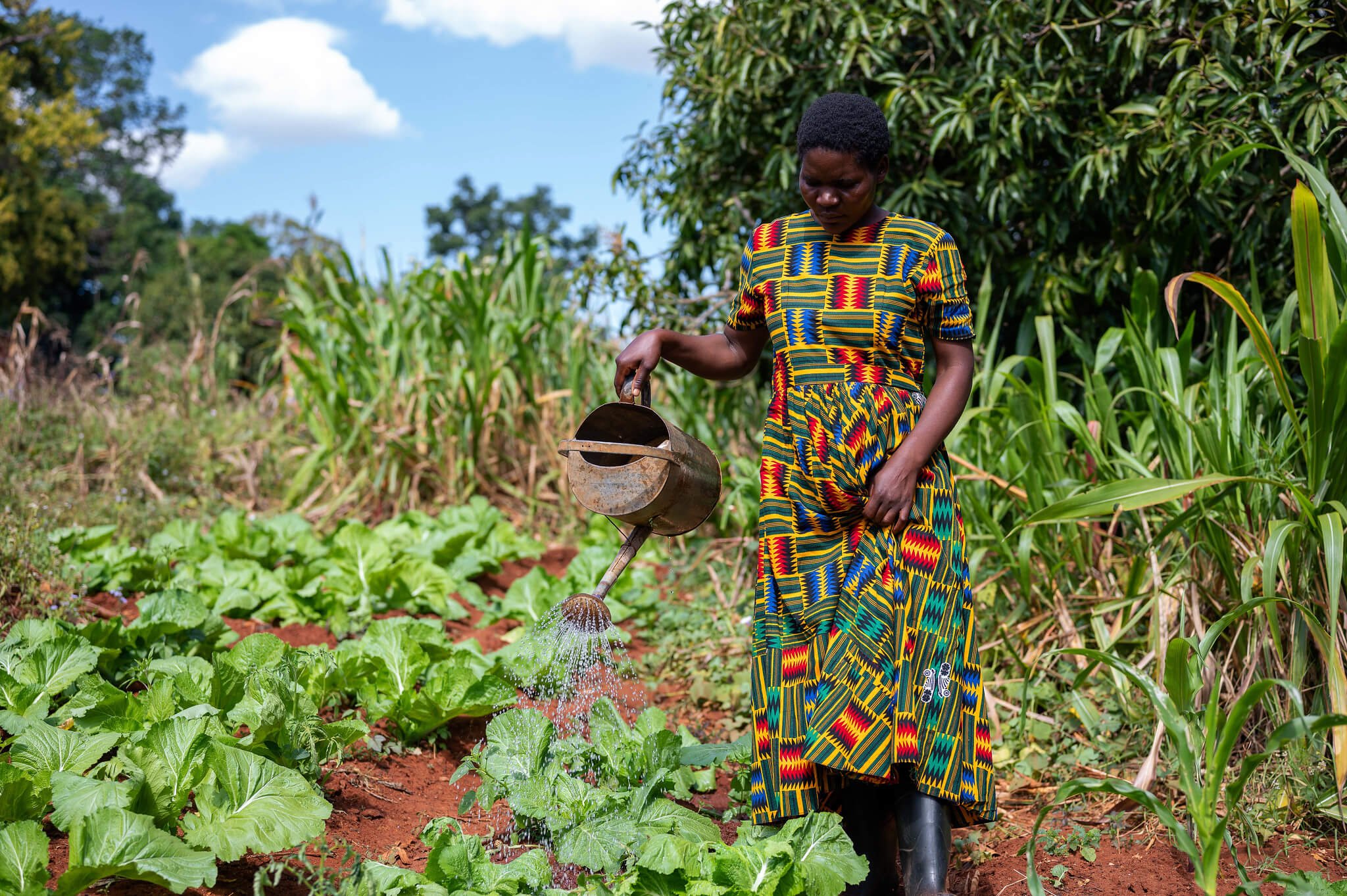


![Durah [name changed to protect her identity], 39, works as a supervisor on several tea estates in Kenya and is a smallholder farmer herself. Image: Rehema Baya / ActionAid](https://shk7ecqj.cdn.imgeng.in/wp-content/uploads/2023/10/Empowering-Tea-Communities-in-Kenya-1.jpg)
